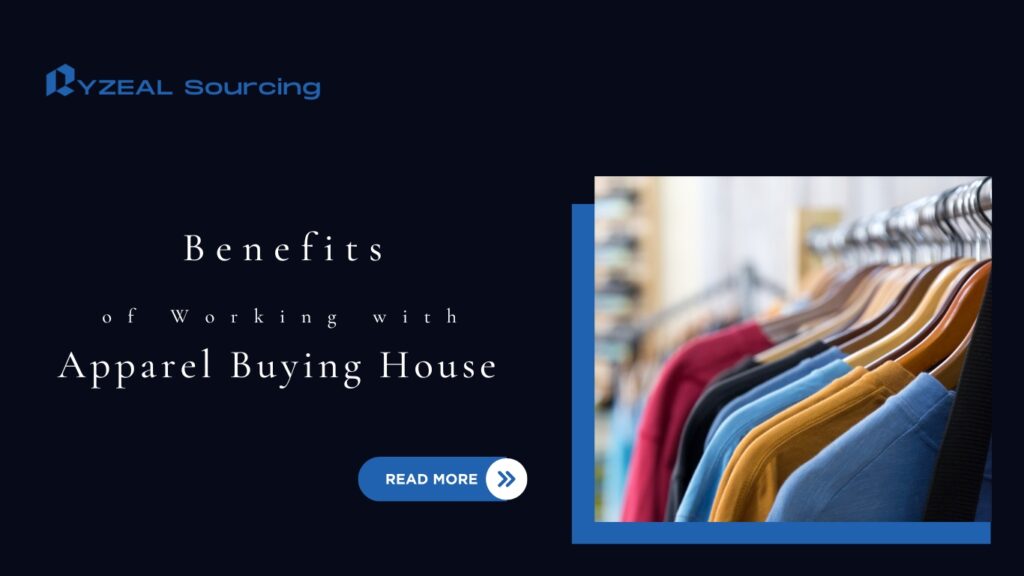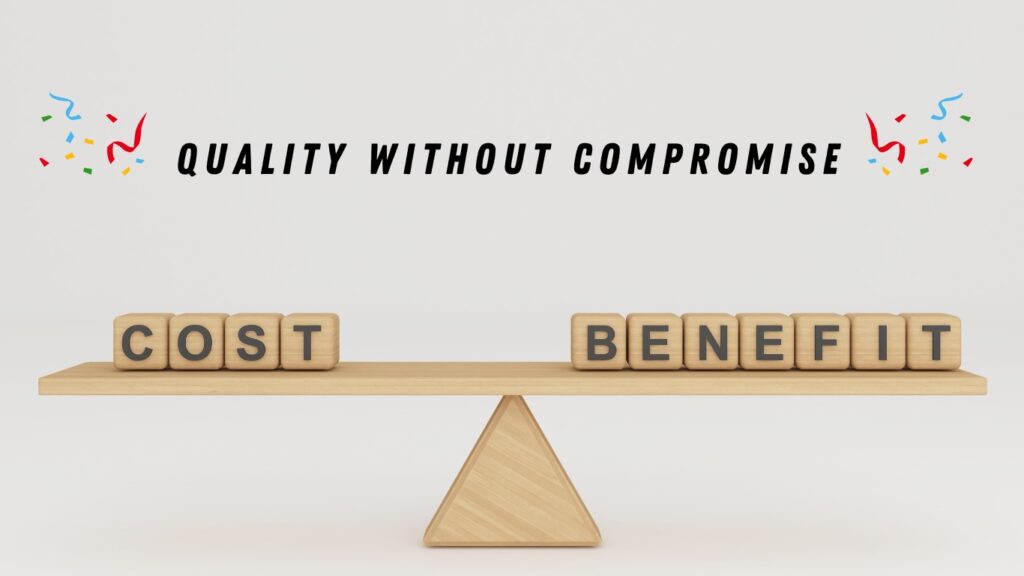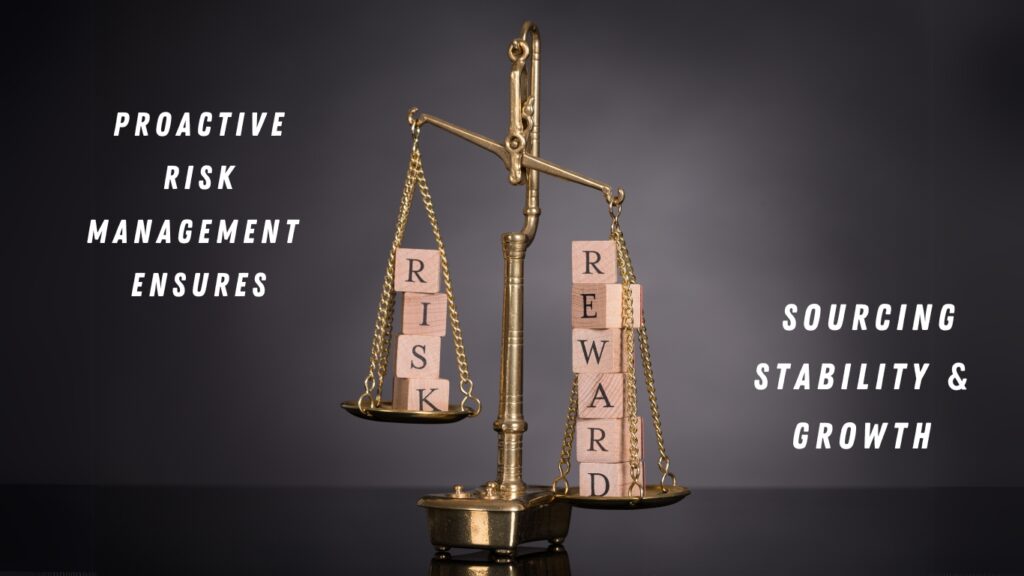
The benefits of working with an apparel buying house go far beyond just simplifying sourcing. In the global apparel industry¹, sourcing efficiency is a key determinant of profitability and competitiveness. With growing market complexities, brands and retailers face challenges such as finding reliable manufacturers, negotiating fair pricing, maintaining product quality, and ensuring compliance with labor and environmental regulations. These challenges, if not managed properly, can result in financial losses, production delays, and damage to brand reputation.
This is where apparel buying houses² come into play. Serving as trusted intermediaries, they streamline the entire sourcing process by leveraging their extensive networks, negotiating better prices, ensuring quality control, and optimizing logistics.
For brands and retailers, partnering with a buying house offers cost-effectiveness, risk reduction, and enhanced supply chain efficiency. Below, we explore the major benefits of working with a buying house in the apparel industry.
1. Access to an Extensive Network of Verified Manufacturers
One of the biggest advantages of partnering with a buying house is access to a pre-vetted network of factories and suppliers. Instead of spending time and resources verifying multiple manufacturers, brands can leverage the existing relationships³ buying houses have built over the years.
These manufacturers are selected based on:
- Fabric specialization (woven, knits, denim, technical fabrics, etc.).
- Product categories (casual wear, formal wear, activewear, uniforms, etc.).
- Production capacity (small-batch orders vs. bulk manufacturing).
- Certifications & compliance (GOTS⁴, OEKO-TEX⁵, BSCI⁶, WRAP⁷).
By utilizing a buying house’s sourcing expertise, brands can minimize risks associated with unverified factories and enhance their supply chain reliability.
2. Cost Efficiency and Competitive Pricing
Negotiating with manufacturers individually can be time-consuming and expensive. Many brands lack the purchasing power to secure competitive pricing⁸. Buying houses, however, place bulk orders for multiple clients, allowing them to:
- Negotiate better pricing without sacrificing product quality.
- Reduce costs related to middlemen and hidden sourcing fees.
Optimize import/export duties by leveraging their regional expertise.

This cost advantage is particularly beneficial for small and medium-sized brands that may struggle to compete with larger retailers when sourcing directly.
3. Quality Assurance and Compliance Oversight
Inconsistent product quality can lead to returns, reputational damage, and lost revenue. Apparel buying houses implement stringent quality control measures throughout the production cycle. These include:
- Pre-production sample approvals to match buyer expectations.
- In-line inspections⁹ to detect early-stage defects.
- Final AQL (Acceptable Quality Level) audits before shipment.
- Lab testing¹⁰ for shrinkage, colorfastness, and durability.
By partnering with a buying house, brands can ensure consistent product quality while reducing production risks.
4. Simplified Communication & Order Management
Managing multiple suppliers can create miscommunication, delays, and production errors. Buying houses act as a single point of contact, handling all communication between buyers and manufacturers. This includes:
- Timely updates on order progress to avoid mismanagement.
- Clear documentation for production schedules, contracts, and compliance reports.
- Quick conflict resolution in case of production issues.
This structured communication framework improves operational efficiency and reduces the chances of costly mistakes.
5. Ethical and Sustainable Sourcing Practices
With consumers demanding ethical and sustainable fashion¹¹, brands must ensure their supply chain aligns with industry standards. A reputable buying house ensures that:
- Factories follow fair labor practices¹².
- Environmental sustainability measures (waste reduction, water conservation) are in place.
- Suppliers adhere to third-party compliance programs (SEDEX¹³, WRAP⁷, BSCI⁶).
This reduces compliance risks and enhances a brand’s reputation for responsible sourcing.
6. Faster Lead Times & Supply Chain Optimization
Buying houses optimize lead times¹⁴ by ensuring:
- Fast and reliable factory selection.
- Efficient raw material sourcing for uninterrupted production.
- Well-coordinated logistics to prevent delivery delays.
This helps brands maintain steady inventory flow and meet retail deadlines.
7. Risk Mitigation & Adaptability to Market Changes
Sourcing apparel internationally comes with risks such as trade restrictions, currency fluctuations, and factory disruptions. Buying houses help mitigate risks by:
- Providing alternative sourcing solutions during disruptions.
- Offering insights on pricing trends and global market changes.
- **Ensuring brands stay compliant with evolving trade regulations¹⁵.
This makes sourcing more resilient and adaptable to unexpected challenges. Have a watch at this good strategy of risk management.
8. Support in Product Development & Innovation
Beyond sourcing, many buying houses offer product development services to help brands stay ahead of fashion trends. Services include:
- Trend forecasting and market research.
- Material and trim innovation for better product performance.
- Prototype & sample development¹⁶.
This support helps brands launch unique, high-quality products faster.
A buying house streamlines sourcing, ensures efficiency, and reduces operational risks, making it an indispensable partner for fashion brands and retailers.
RYZEAL’s Perspective: The Strategic Role of an Apparel Buying House in Sourcing Efficiency
In today’s highly competitive global fashion market, apparel brands and retailers must navigate complex sourcing challenges, including cost control, quality assurance, compliance, and supply chain efficiency. At RYZEAL SOURCING, we have seen firsthand how working with a buying house can significantly enhance sourcing operations, ensuring brands get the best manufacturers while mitigating risks.
As an experienced apparel buying house, RYZEAL SOURCING plays a crucial role in bridging the gap between buyers and manufacturers, helping brands optimize their supply chains, maintain ethical sourcing standards, and secure competitive pricing. Below, we outline the strategic benefits that make buying houses an essential partner for efficient sourcing.
1. Ensuring Reliable Manufacturer Selection
One of the biggest concerns for apparel buyers is the risk of working with unreliable or unverified manufacturers. Many factories may promise high-quality production, but without proper due diligence, brands can face supply chain disruptions, quality inconsistencies, and delivery delays.
At RYZEAL SOURCING, we eliminate this uncertainty by connecting brands with pre-vetted, trusted manufacturers that meet specific criteria:
- Expertise in different apparel categories (knits, wovens, denim, sweaters, etc.).
- Capacity to meet production timelines and volume requirements.
- Compliance with ethical, environmental, and safety standards.
- Proven track record of quality assurance.
By leveraging our deep industry knowledge and supplier relationships, we ensure that buyers work with only the most reliable factories.
2. Competitive Price Negotiation Without Compromising Quality
Many apparel brands struggle with price negotiations, especially when dealing with international manufacturers. A lack of direct relationships and bulk purchasing power often results in higher costs or unfavorable payment terms.

As an established buying house, RYZEAL SOURCING has:
- Long-standing relationships with top-tier suppliers, allowing us to negotiate favorable pricing for our clients.
- Knowledge of material costs, labor charges, and freight pricing, ensuring cost optimization at every stage.
- The ability to secure better payment terms, helping brands maintain healthy cash flow.
With our expertise, brands can reduce production costs while maintaining high product quality and profitability.
3. Comprehensive Quality Control & Assurance
Poor-quality apparel can result in high return rates, customer dissatisfaction, and reputational damage. A structured quality control process is essential to maintaining consistent product standards.
At RYZEAL SOURCING, we implement multi-stage quality checks to ensure every product meets international standards:
- Fabric and trim approval before bulk production
- Pre-production sample inspections to align with buyer specifications.
- In-line production monitoring to detect defects early.
- Final quality control (AQL standards) before shipment.
- By enforcing strict quality assurance measures, we help brands eliminate defects, reduce waste, and maintain a strong market reputation.
4. Efficient Supply Chain & Logistics Coordination
A well-structured supply chain is the backbone of successful apparel sourcing. Managing raw materials, production schedules, and logistics requires constant monitoring and coordination.
RYZEAL SOURCING provides:
- Seamless order tracking and real-time updates on production progress.
- Optimization of shipping and logistics routes to reduce lead times.
- Alternative supplier solutions in case of unforeseen disruptions.
With our supply chain expertise, buyers avoid delays, reduce costs, and ensure on-time deliveries.
5. Compliance, Sustainability & Ethical Sourcing
With the rise of conscious consumerism, brands are now under pressure to source from ethical, sustainable, and compliant factories. However, ensuring compliance across multiple factories and supply chains can be a complex challenge.
At RYZEAL SOURCING, we ensure all manufacturers adhere to strict industry certifications, including:
- BSCI & SEDEX for ethical labor practices.
- GOTS & OEKO-TEX for sustainable fabric sourcing.
- WRAP for factory compliance and worker safety.
By maintaining ethical sourcing standards, we help brands enhance their credibility, meet regulatory requirements, and appeal to socially responsible consumers.
6. Faster Time-to-Market with Product Development Support
In an industry where fashion trends change rapidly, brands need speed and flexibility in bringing products to market. RYZEAL SOURCING supports brands with:
- Trend research and forecasting to align with current consumer demands.
- Prototype and sample development for faster approval processes.
- Material sourcing and innovation to create unique, high-performance apparel.
This allows our clients to reduce development cycles and stay ahead in the market.
7. Risk Mitigation & Business Continuity Planning
External factors like political instability, trade regulations, and supply chain disruptions can pose serious risks for apparel brands. Our expertise helps buyers:
- Identify alternative sourcing regions to mitigate geopolitical risks.
- Navigate tariff changes and import/export policies.
- Implement backup production strategies to avoid disruptions.

With RYZEAL SOURCING’s proactive risk management, brands maintain business continuity and stability even in unpredictable market conditions.
Final Thoughts
As an experienced buying house, RYZEAL SOURCING empowers apparel brands with a reliable, cost-effective, and risk-free sourcing strategy. Our expertise, vast supplier network, and commitment to quality help brands achieve seamless production, ethical compliance, and competitive pricing. By partnering with us, buyers can focus on brand growth and market expansion, while we handle the complexities of sourcing and supply chain management.
References
- McKinsey & Company. (n.d.). State of Fashion Report. Retrieved from https://www.mckinsey.com/industries/retail/our-insights/state-of-fashion
- Fibre2Fashion. (n.d.). Role of Buying Houses in the Global Apparel Trade. Retrieved from https://www.fibre2fashion.com/industry-article/9100/role-of-buying-houses-in-the-global-apparel-trade
- Just Style. (n.d.). The Importance of Ethical Sourcing in the Fashion Industry. Retrieved from https://www.just-style.com/analysis/the-importance-of-ethical-sourcing-in-the-fashion-industry/
- Global Organic Textile Standard (GOTS). (n.d.). GOTS Certification Standards. Retrieved from https://global-standard.org/
- OEKO-TEX. (n.d.). OEKO-TEX Certification and Standards. Retrieved from https://www.oeko-tex.com/en/
- amfori BSCI. (n.d.). amfori BSCI Compliance Standards. Retrieved from https://www.amfori.org/content/amfori-bsci
- WRAP. (n.d.). Worldwide Responsible Accredited Production (WRAP) Standards. Retrieved from https://wrapcompliance.org/
- Fashion Revolution. (n.d.). Sustainable Fashion Glossary. Retrieved from https://www.fashionrevolution.org/resources/sustainable-fashion-glossary/
- Textile Today. (n.d.). Compliance & Quality Standards in Apparel Industry. Retrieved from https://www.textiletoday.com.bd/category/compliance-quality/
- Intertek. (n.d.). Consumer Goods Testing and Quality Control. Retrieved from https://www.intertek.com/consumer/
- Business of Fashion. (n.d.). What is Sustainable Fashion?. Retrieved from https://www.businessoffashion.com/briefings/sustainability/what-is-sustainable-fashion/
- International Labour Organization (ILO). (n.d.). Textiles, Clothing, Leather, and Footwear Industry Labour Standards. Retrieved from https://www.ilo.org/global/industries-and-sectors/textiles-clothing/lang–en/index.htm
- SEDEX. (n.d.). Supplier Ethical Data Exchange (SEDEX) Compliance. Retrieved from https://www.sedex.com/
- Supply Chain Dive. (n.d.). How to Optimize Lead Times in the Apparel Industry. Retrieved from https://www.supplychaindive.com/
- World Trade Organization (WTO). (n.d.). Trade Regulations and International Sourcing Policies. Retrieved from https://www.wto.org/
- Just Style. (n.d.). How Apparel Buying Houses are Evolving in the Fashion Supply Chain. Retrieved from https://www.just-style.com/analysis/how-apparel-buying-houses-are-evolving/
Additional Resources for Further Reading
- Better Cotton Initiative (BCI): https://bettercotton.org/
- United Nations Sustainable Fashion Goals: https://sdgs.un.org/topics/sustainable-fashion
- Apparel Impact Institute: https://apparelimpact.org/
